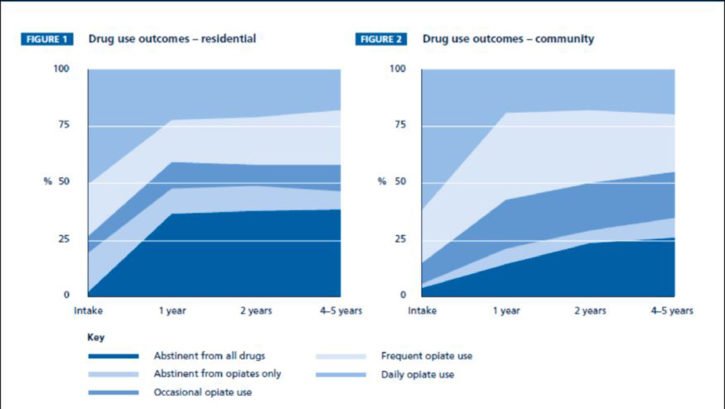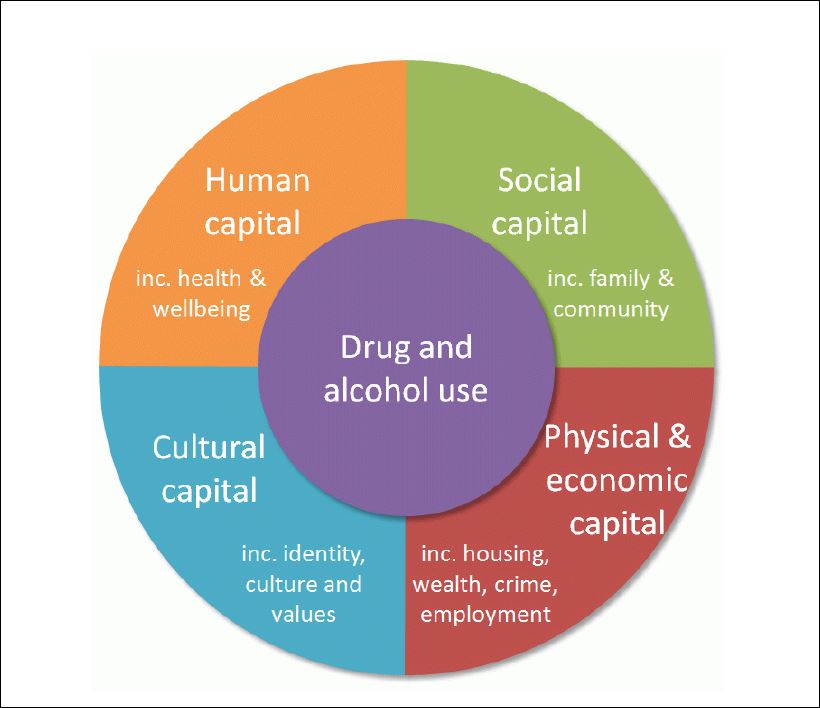Does drug treatment work?
Measuring drug recovery is problematic, to say the least. Recovery from drug dependence is, like desistance from crime, rarely a linear process and typically includes lapse and relapse over many years. Different people choose different recovery goals: some people remain abstinent from all substances for life; others continue to use occasionally; or replace drug dependence with a reliance on alcohol.
The very nature of dependence makes outcomes difficult to measure which is why the Second Report of the Advisory Committee on the Misuse of Drugs (ACMD) Recovery Committee makes for such interesting reading.
What recovery outcomes does the evidence tell us we can expect? was published on 28 November.
What the research tells us?
The report is very frank about the methodological challenges and many of the research findings vary enormously depending on the studies reviewed. Nonetheless some of the headline conclusions are fascinating. Based mainly on US studies we learn that:
the methodological challenges and many of the research findings vary enormously depending on the studies reviewed. Nonetheless some of the headline conclusions are fascinating. Based mainly on US studies we learn that:
Recovery varies by substance
It appears clear that recovery rates vary considerable according to the substance that people are dependent on. For me, the three most important findings were:
Why is it so hard to help heroin users recover?
The ACMD research found that many people who become dependent on heroin are more likely to have had problems or issues prior to becoming dependent. Heroin using lifestyles can incur significant collateral damage including health problems (especially for injectors), economic difficulties or criminal involvement, unemployment etc.
The concept of recovery is therefore highly ambitious as it is asking individuals to not only overcome their dependence but also achieve positive outcomes in health, social and economic functioning that some have never previously had – and all while also trying to manage the consequences of significant collateral damage.
Treatment helps…
Drug treatment is helpful at starting people on the road to recovery. The report says there is extensive evidence to support the effectiveness of good quality drug treatment which:
•Protects health
•Reduces crime
•Reduces spread of BBV
•Is cost-effective
But not enough to sustain recovery
However, the ACMD is equally clear the effects of drug treatment are not sufficient to help recovering addicts maintain recovery:
“The impact of drug and alcohol treatment is thought to fade quickly after someone has left and treatment alone does not create sustained recovery outcomes in individuals.“
Recovery outcomes may be difficult to measure but the ACMD is confident they can be achieved and of the importance of developing recovery capital in different domains:
The challenge for commissioners of drug recovery systems is to ensure they place as much emphasis on the creation, development and nurturing of recovery communities as they do on treatment modalities.









2 Responses
Recovery from any chemical substance is tough, from nicotine to narcotics. Abstaining from the use of substances such as these is a personal choice that is magnified by peer pressure, both good and bad. Your friends can be supportive of your desire to quit, or they can be the reason you don’t. In the criminal justice system, I think the utilization of Drug Courts has been very instrumental in a reduction in the recidivism rates among drug offenders. They provide positive peer associations and encouragement, and provide an education on the results of maintaining a chemically dependent lifestyle.
Just going for a rehabilitation program won’t work. f you want to actually recover from your drug addiction then you have to try really hard. Different rehabilitation centers uses a variety of programs that helps the addict to come out of his dark life and brighten their future.
Also I think along with the addict his family should also be counselled as they will have to play an important role in ensuring that they don’t go back to their ways.